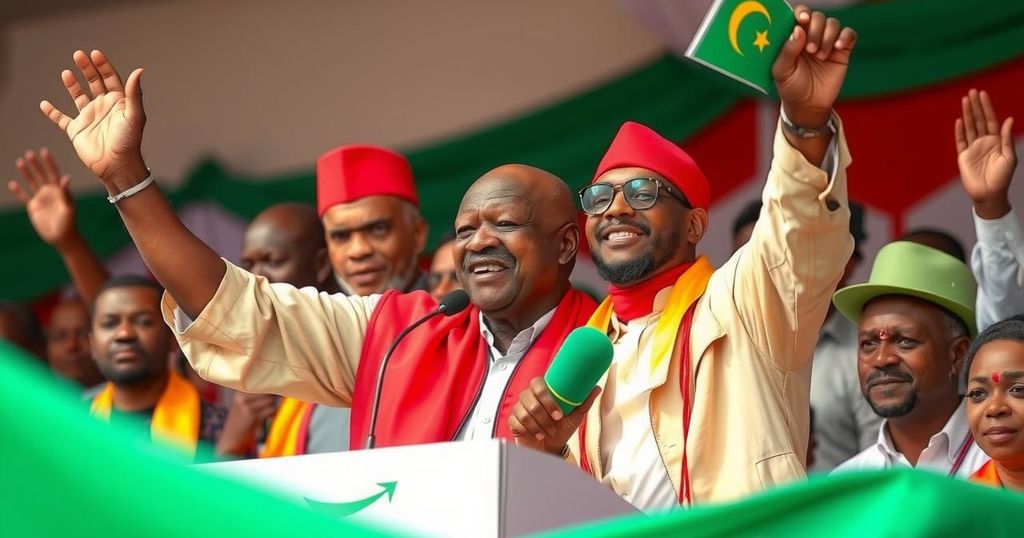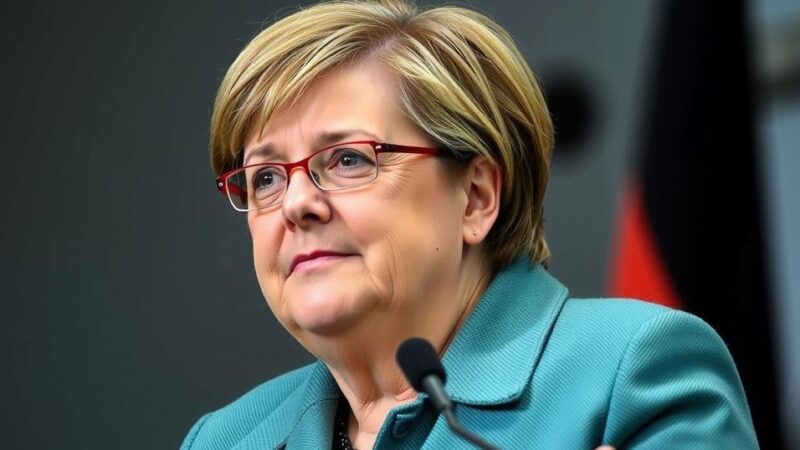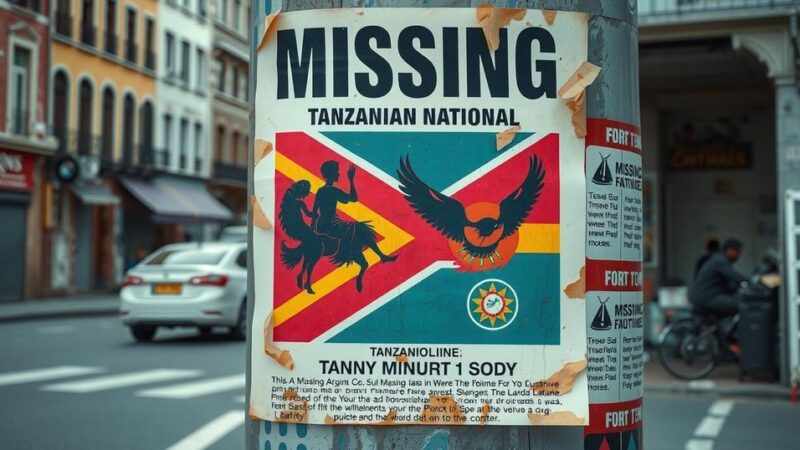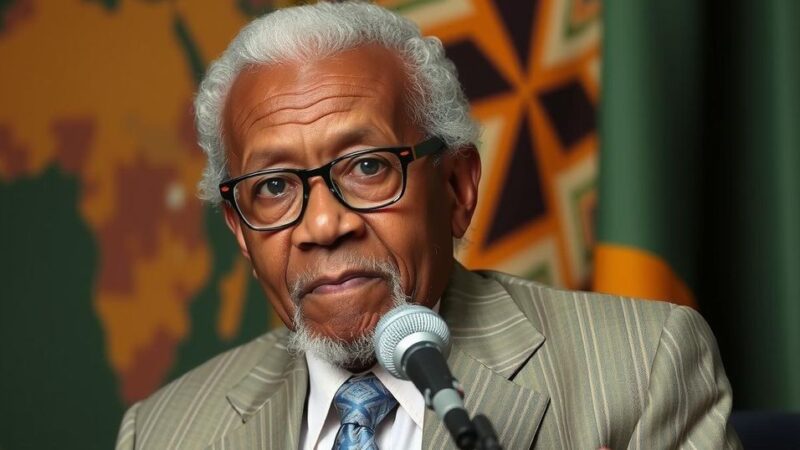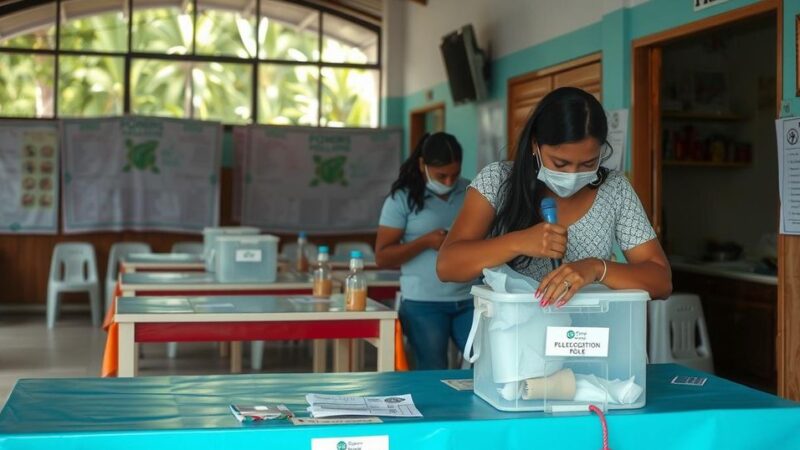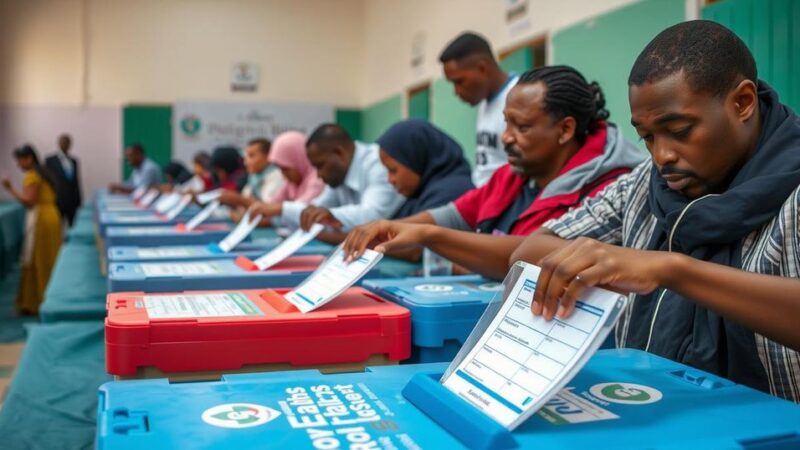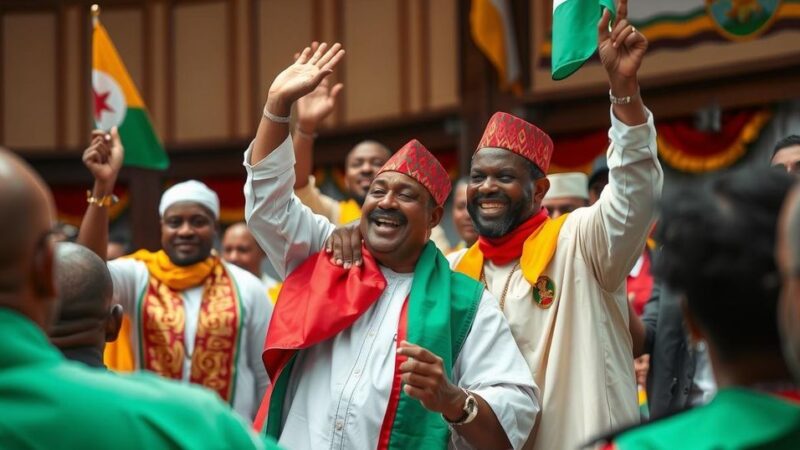Chad’s ruling Patriotic Salvation Movement has won a majority in parliamentary elections boycotted by the main opposition, securing 124 out of 188 seats. This election follows a military takeover in 2021 and aims to decentralize power. Opposition parties expressed concerns about the election’s credibility, labeling it a “charade,” amid pressing security challenges facing Chad.
Chad’s ruling party, the Patriotic Salvation Movement, secured a majority in the recent parliamentary elections held last month, according to provisional results announced by Ahmed Bartchiret, head of the electoral commission. In a significant political event that marked the first parliamentary elections in over a decade, the ruling party obtained 124 of the available 188 seats, amidst a voter turnout of 51.5%. The elections were boycotted by the main opposition parties, which raised concerns about the credibility of the electoral process.
The parliamentary elections were part of a broader transition to democracy in Chad, following the military takeover led by Mahamat Idriss Deby in 2021, after the death of his father, long-serving president Idriss Deby Itno. The ruling party’s success is viewed as a consolidation of President Deby’s political power. He emphasized that this election would initiate a long-awaited decentralization process, distributing power to local governance structures across the nation.
The boycott by several opposition parties, including the prominent Transformers party led by Succes Masra, underscores longstanding tensions in Chadian politics. The opposition labeled the election a “charade” and expressed fears of its resemblance to the disputed presidential election from the previous year, which observers deemed not credible. As a result, the main opposition refrained from commenting on the recent election results.
This electoral event occurs during a tumultuous period for Chad, which faces multiple security challenges, including militant attacks from Boko Haram in the Lake Chad region and the deterioration of its military relations with France. These dynamics illustrate the intricate and pressing challenges facing the Chadian government, enhancing the significance of the election results in the broader context of national stability and governance.
Chad’s recent parliamentary elections represent a pivotal moment in the country’s political landscape, occurring over a decade after the last such elections. Following the military takeover by Mahamat Idriss Deby, the son of the late long-term president Idriss Deby Itno, these elections signify a potential shift towards democratic governance, although opposition parties have raised serious doubts about their credibility. The insistence on decentralization by the ruling party reflects a desire to address local governance issues, notwithstanding the backdrop of political unrest and security challenges facing the nation.
The recent parliamentary elections in Chad, dominated by the ruling Patriotic Salvation Movement amid a boycott from major opposition parties, signal a consolidation of President Mahamat Idriss Deby’s power. The call for decentralization reflects an attempt to address governance challenges, yet opposition skepticism regarding electoral integrity raises concerns about the country’s democratic trajectory. Furthermore, the ongoing security issues present significant challenges to the stability of Chad’s political landscape, underscoring the complexities of governance in the region.
Original Source: abcnews.go.com

